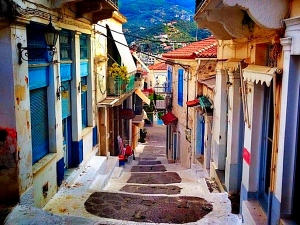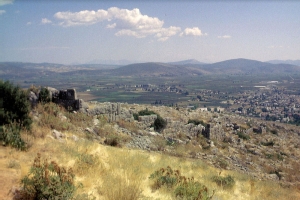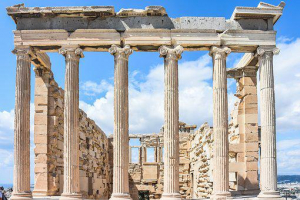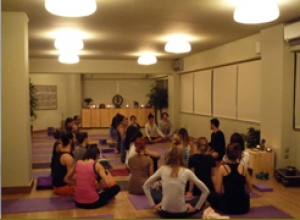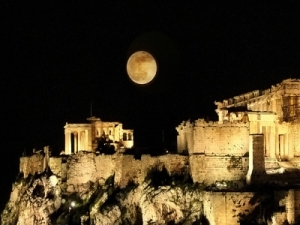From our member Richard M.: If you meet me, you’d think I am the most relaxed, chilled out person you’ve ever met. But on the inside, my mind is constantly spinning, thinking about everything from tonight’s dinner to the cat on the corner to the reasons for the Eurozone crisis. Often all at the same time.
This isn’t stress. This is mental ‘fast forward’. It has always been a challenge for me to really slow down; mental relaxation is an elusive friend.
I’ve been told many times to try yoga. I must admit that I am not a yoga guy. I’m interested, I understand the basic concept, I know lots of people who swear it delivers on all its promises – I get it. But I have never tried it.
Until this week! A friend told me about this great yoga studio in Monastiraki, so I decided to give it a try.
My first fear was about doing yoga in Greek! Lucky for me, the entire session was in English. I entered the studio, took off my shoes, picked up a purple mat and joined the rest of the 10-person group. The session started with breathing exercises and easy warm-ups. We progressed through a series of increasingly demanding ‘poses’, with correct breathing techniques, meant to improve physical and mental balance.
It was a great experience for me, moreso because I felt that the instructor was tuned in to me, and really to each person in the class. Within the first two minutes, she told us (me?) to slow down our breathing, and allow our (my?) brain to slow down and be less reactive… Well, from then until the end of the session, I was a convert.
On the way home, I felt great. At the risk of repeating a cliché, maybe yoga really can change your life. I’m curious to see if it’s true.
Many thanks to Lynn for this great introduction to yoga!
Richard
Bhavana Yoga Center
www.bhavanayoga.com
Classes each Monday 18.30
Cost: donation basis, starting from €8
Thanks Richard for sharing your story with us. We look forward to hearing more stories.
Until next week,
Jack
In this weekly space, keep up with ‘Jack’ as he navigates daily life in Athens… Anecdotes, stories, hits & misses, the good, the bad and, well, the rest…


